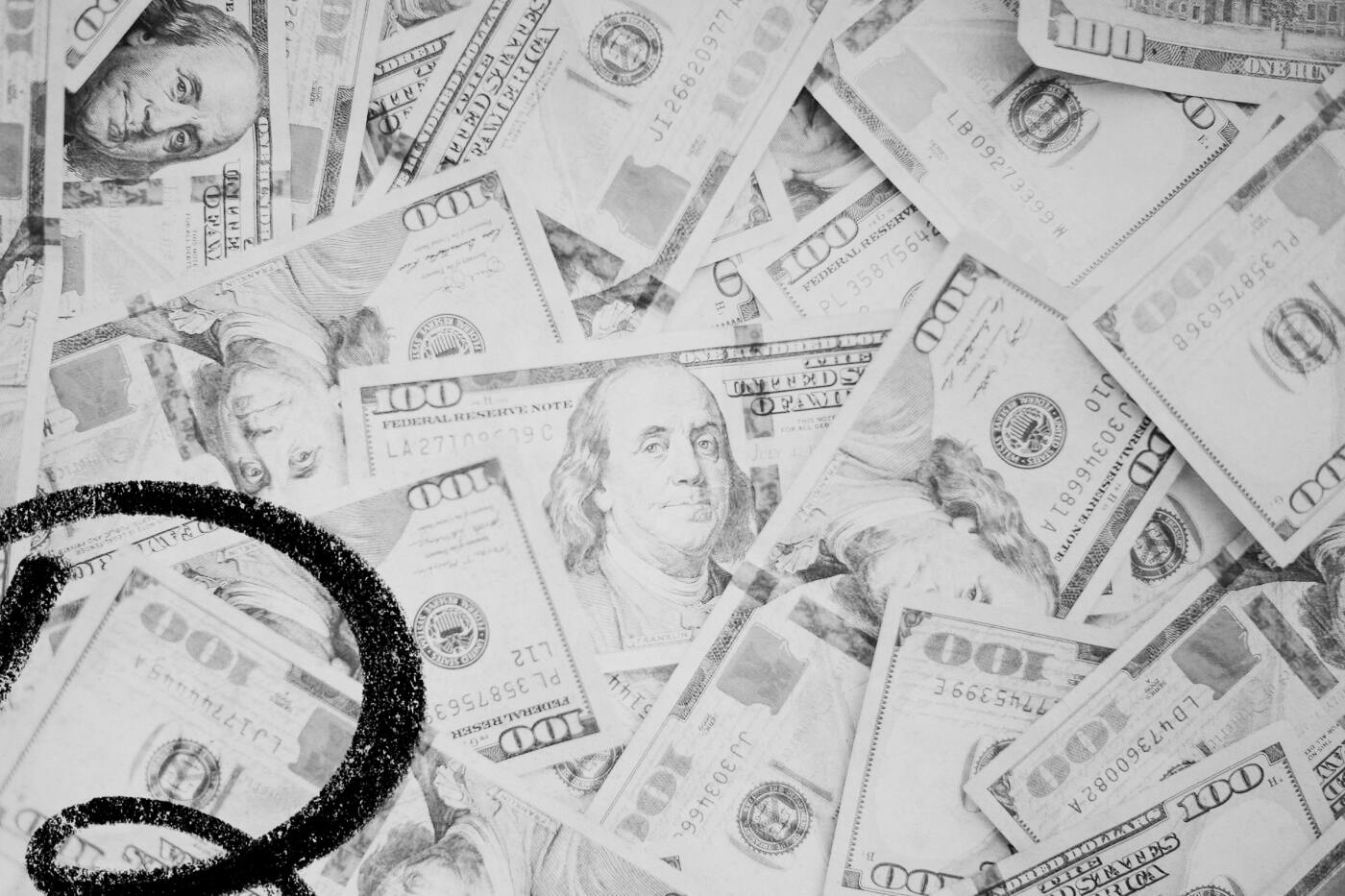
Last week, I looked at my portfolio and decided to cash out some of my BTC at around $56,000.
Was I crazy? Bitcoin had appreciated over 600% in the last year and showed no signs of slowing down. But I took some money off the table anyway.
This week, Bitcoin’s price dropped to around $49,000. It’s tempting to say I “called the top,” but I didn’t predict anything. I was just following the intuition I got from a thought exercise I call the “Money Pile.”
In this exercise, you ask yourself the question:
"If I had all of my different investments in a big pile of cash in front of me, would I allocate it in roughly the same way it's currently allocated?"
I go through the Money Pile exercise each month when I do my financial review. I look at the balances across my different accounts and investments, and ask myself if that's the allocation I would pick if it weren't already allocated.
The biggest benefit of reviewing your investments like this is it helps you ignore some Fear Of Missing Out. When Bitcoin or any other asset is on a crazy tear, it's tempting to assume it will keep going up forever. But that's rarely the case. When your investment went up 600% over the course of a few months, it's really hard to say “rationally, this won’t continue,” and pull some out, unless you can discount your knowledge of that historic run.
By using the Money Pile exercise, you can psychologically block an investment’s past performance, and instead ask yourself if you would put 30% (or whatever you have already allocated) of your money pile into Bitcoin right now, or if that feels like too much.
It’s somewhere between a gut call and a diligent rebalancing strategy. When you invest in a bunch of different kinds of assets, it’s tough to keep your specific allocations strict. Wealthfront or Betterment can maintain your portfolio’s desired spread highly efficiently. But if you’re trying to invest in real estate, crypto, art, startups, or anything else with opaque value or high volatility and some guesswork involved, a gut call is always going to be necessary to some degree.
It would be very hard to maintain a perfect, specific, allocation of your net worth in crypto. But if you’re dollar cost averaging into it by buying a little bit every week or month, and then taking money off the table when it feels like it’s too high a percentage, you can still maintain some control without getting overly swayed by the laser eyes. The money pile lets you still invest partially with your gut, but still within some bounds of a good portfolio strategy.
Sometimes you don't have a choice. Angel investments and mortgages are a good example here. I can't exactly rebalance out my startup equity (without another fundraising round) or sell half my house.
But for most things you do have a choice. The most relevant recent one for me being Bitcoin, and to a lesser extent, tech stocks.
Even if you've seen crazy multiples in your Bitcoin portfolio over the last year, that doesn't necessarily mean you should keep riding it to the moon. You can believe in the future of an investment and also believe you should take some money off the table. As much as the HODL community might disagree, it’s smart to occasionally reallocate your gains as you accrue them.
“How much” is a question you’ll have to answer for yourself. For me, I was up to 30% of my net worth in BTC, which felt way too dangerous, so I sold down to 20%. I might keep selling down to 10-15%, I haven’t decided yet. You will pay capital gains tax, yes, but the great thing about investing in other assets like real estate is there are plenty of ways to mitigate your tax liability.
It helps to know what you’re going to use it for, too. I’m putting it towards the down payments on commercial properties for the Creator Town I’m working on outside of Austin. As much as Bitcoin has shot up, its value is still something you have no control over, and selling an asset you can’t control to invest in one where you can affect the outcome is always a good move to me.
So if you have any kind of monthly or quarterly financial review, consider adding the Money Pile thought exercise to it. And next time the laser eyes come out, maybe look at the pile extra carefully.
The Only Subscription
You Need to
Stay at the
Edge of AI
The essential toolkit for those shaping the future
"This might be the best value you
can get from an AI subscription."
- Jay S.
Join 100,000+ leaders, builders, and innovators

Email address
Already have an account? Sign in
What is included in a subscription?
Daily insights from AI pioneers + early access to powerful AI tools







Comments
Don't have an account? Sign up!